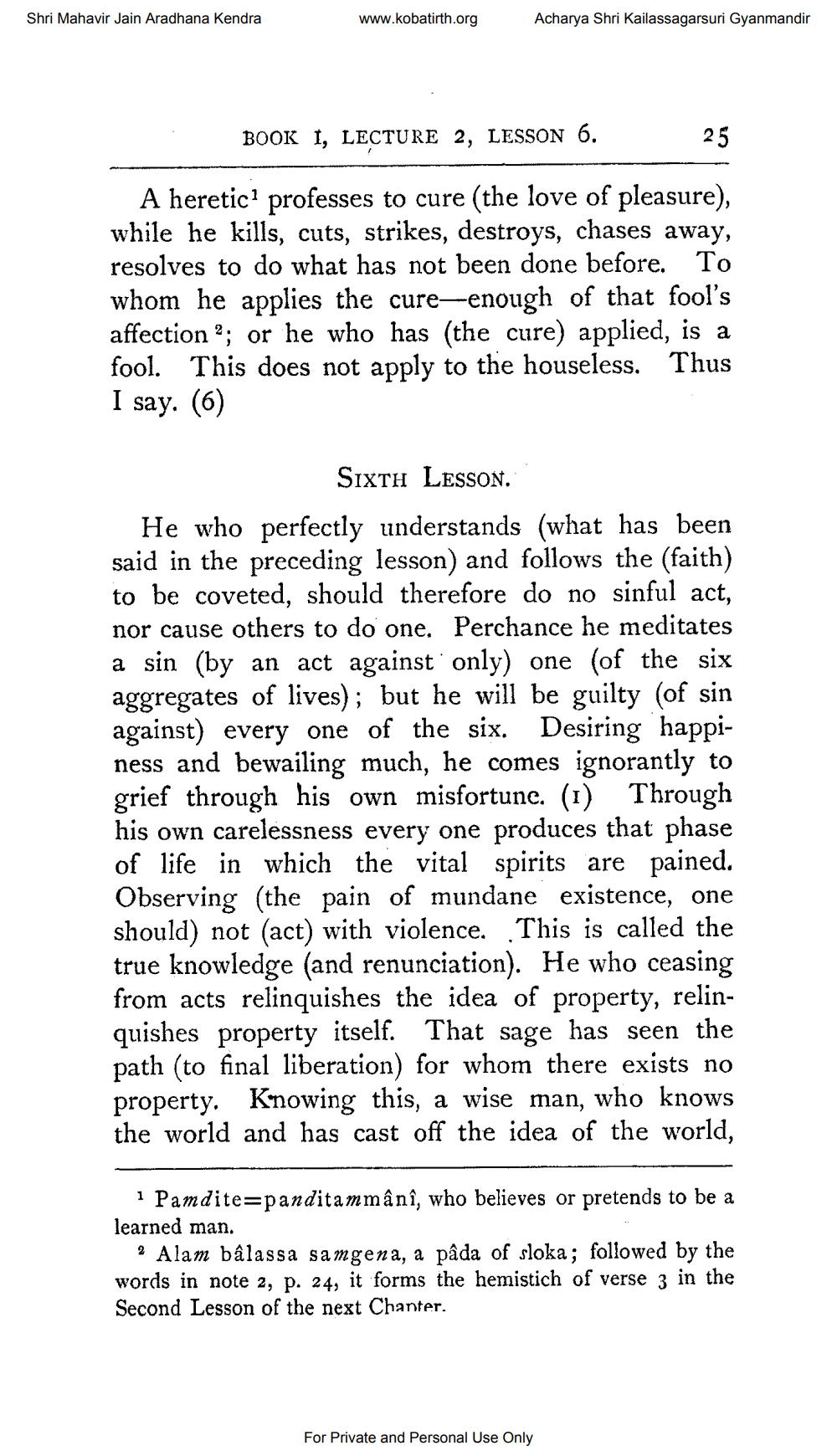________________
Shri Mahavir Jain Aradhana Kendra
www.kobatirth.org
Acharya Shri Kailassagarsuri Gyanmandir
BOOK I, LECTURE 2, LESSON 6.
A heretic1 professes to cure (the love of pleasure), while he kills, cuts, strikes, destroys, chases away, resolves to do what has not been done before. To whom he applies the cure-enough of that fool's affection 2; or he who has (the cure) applied, is a fool. This does not apply to the houseless. Thus I say. (6)
25
SIXTH LESSON.
He who perfectly understands (what has been said in the preceding lesson) and follows the (faith) to be coveted, should therefore do no sinful act, nor cause others to do one. Perchance he meditates a sin (by an act against only) one (of the six aggregates of lives); but he will be guilty (of sin against) every one of the six. Desiring happiness and bewailing much, he comes ignorantly to grief through his own misfortune. (1) Through his own carelessness every one produces that phase of life in which the vital spirits are pained. Observing (the pain of mundane existence, one should) not (act) with violence. This is called the true knowledge (and renunciation). He who ceasing from acts relinquishes the idea of property, relinquishes property itself. That sage has seen the path (to final liberation) for whom there exists no property. Knowing this, a wise man, who knows the world and has cast off the idea of the world,
1 Pamdite panditammânî, who believes or pretends to be a learned man.
2 Alam bâlassa samgena, a pâda of sloka; followed by the words in note 2, p. 24, it forms the hemistich of verse 3 in the Second Lesson of the next Chanter.
For Private and Personal Use Only




